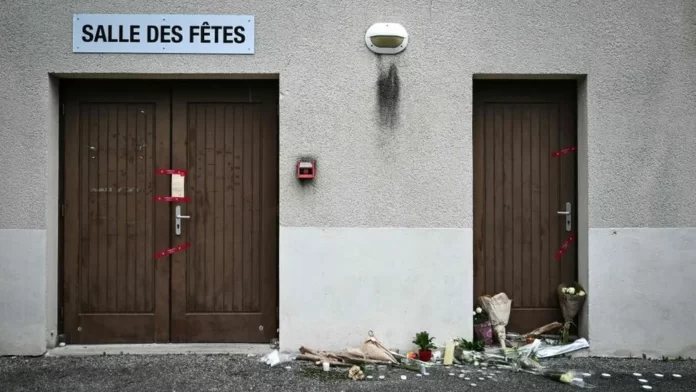
In the wake of violent protests triggered by the tragic murder of a 16-year-old schoolboy named Thomas in the village of Crépol, French Interior Minister Gérald Darmanin has announced plans to propose a ban on small ultra-right groups.
The incident occurred during a village dance on November 18, resulting in the fatal stabbing of Thomas and the subsequent eruption of tensions that have been seized upon by extreme-right activists.
Prosecutors have initiated formal investigations against nine suspects linked to the violent altercation at the dance.
However, Darmanin’s proposed ban on ultra-right groups reflects the government’s concern over the exploitation of the tragedy by extremist factions.
During a visit to Crépol, government spokesman Olivier Véran appealed to the public “not to answer violence with violence” and warned of the societal risk of “tipping over.”
The circumstances surrounding Thomas’s killing remain unclear, and prosecutors have cautioned against hasty conclusions.
Reports suggest that an argument inside the village hall escalated into a brawl outside as more young people arrived at the scene.
Thomas, described as a keen rugby player, was mourned by 2,000 people, and a minute’s silence was observed at French rugby games over the weekend.
Despite the absence of confirmed racial motives, far-right politicians alleged a racial element to the crime.
This narrative was seized upon by extremist groups, leading to protests in Romans-sur-Isère, 16km south of Crépol, where some of the suspects reportedly lived.
Authorities reported that the protests turned violent, with extremist groups targeting local residents and law enforcement officers.
Six individuals have already been sentenced in connection with the riots, receiving fast-track jail terms ranging from six to 10 months.
Interior Minister Gérald Darmanin, addressing the rising threat posed by ultra-right groups, stated that he would propose a ban on three small factions linked to the violence.
He emphasized the dangerous ideologies of these militias, noting their inclination to “attack Arabs, people with different skin colors, and speak of their memories for the Third Reich.”
Darmanin disclosed that authorities had foiled 13 far-right terror plots since 2017.
Prime Minister Elisabeth Borne condemned the politicization of the murder, stating that politicians using the incident to “play on fears” exhibited a lack of respect for the victim.
The government’s swift response reflects a commitment to quell rising tensions and prevent the exploitation of the tragedy for ideological purposes.
As France grapples with the aftermath of Thomas’s murder and the ensuing social unrest, the proposed ban on ultra-right groups underscores the government’s determination to address the root causes of the violence and maintain social cohesion.
This article was created using automation technology and was thoroughly edited and fact-checked by one of our editorial staff members